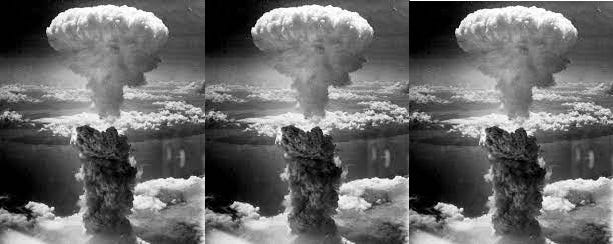
Sunday marks the 78th anniversary of the Enola Gay, piloted by Colonel Paul Tibbets, dropped the atomic bomb that destroyed Hiroshima.
Three days later, we dropped the second atomic bomb on Nagasaki.
The Japanese warlords still voted 3-3 on surrendering.
Intervention by the emperor ended the war and the Japanese told the allies it planned to surrender, which it did on September 2.
With the new movie Oppenheimer’s debut last month and the end of the teaching of American history in a positive light, lefties have resurrected the argument against using the A-bomb to end World War II.
The Atlantic published the first and perhaps only rebuttal you need to read to this daft argument in December 1946.
With the new movie Oppenheimer’s debut last month and the end of the teaching of American history in a positive light, lefties have resurrected the argument against using the A-bomb to end World War II.
The Atlantic published the first and perhaps only rebuttal you need to read to this daft argument in December 1946.
Written by Karl T. Compton, an atomic physicist and president of MIT, one of the many people involved in the development of these two bombs, the article addressed the argument against the bombings.
Compton wrote, “About a week after V-J Day I was one of a small group of scientists and engineers interrogating an intelligent, well-informed Japanese Army officer in Yokohama.
Compton wrote, “About a week after V-J Day I was one of a small group of scientists and engineers interrogating an intelligent, well-informed Japanese Army officer in Yokohama.
We asked him what, in his opinion, would have been the next major move if the war had continued.
He replied: ‘You would probably have tried to invade our homeland with a landing operation on Kyushu about November 1. I think the attack would have been made on such and such beaches.’
“‘Could you have repelled this landing?’ we asked, and he answered: ‘It would have been a very desperate fight, but I do not think we could have stopped you.’
“‘What would have happened then?’ we asked.
“He replied: ‘We would have kept on fighting until all Japanese were killed, but we would not have been defeated,’ by which he meant that they would not have been disgraced by surrender...
No comments:
Post a Comment